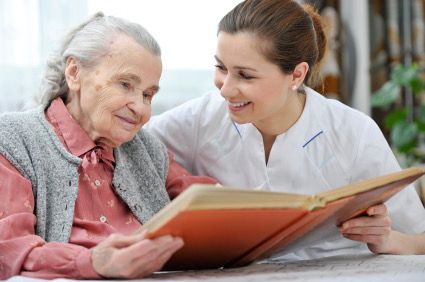
The new coronavirus (COVID-19) creates a lot of difficulties for people suffering from dementia. Keeping patients with dementia in isolation or making them observe the social distancing during the pandemic is tedious enough to deal with. This means not leaving the house unless for essential reasons such as a medical appointment. Therefore such restrictions may make day to day life difficult for them, their families and caregivers. They go through the restrictions for a prolonged period of time without fully understanding why. Dementia patients experience memory loss and are usually confused. The more reason their caregivers stick to a regular daily routine while caring for them. But when their routine is interrupted, it often has effects on their behavior. For many dementia patients, disruption in their routines increases their stress levels. Due to memory loss, forgetting why they can’t go places causes more stress, can lead to pacing, picking at skin, more sadness and loneliness if unable to be with family, anger at not being able to do what they want, and increased frustration with reminders about wearing masks, without understanding why.
ARE DEMENTIA PATIENTS AT GREATER RISK OF CONTRACTING COVID-19?
It has not been reported that dementia increases risk for contracting COVID-19 while other factors that come with dementia like dementia-related behaviors, increased age, and common health conditions may increase risk. Dementia patients are more likely to suffer severity of illness and poorer outcomes if they contract Covid-19. They are also at higher risk of hospitalization, ICU care needs, and death. Cognitive impairment also makes it more difficult for them to self-protect, because they may not understand the risk of disease or remember to be as careful as necessary when there is a virus in the air. This makes a person with dementia an easier target for coronavirus infection. Another challenge is that people suffering from Alzheimer’s disease and all other dementia may forget to wash their hands, wear a mask, or take other recommended precautions to prevent illness.
USEFUL TIPS FOR CAREGIVERS CARING FOR ALZHEIMER’S AND DEMENTIA PATIENTS DURING THE CORONAVIRUS PANDEMIC
Here are some tips families and caregivers of dementia patients can employ to care for their loved ones during the coronavirus pandemic:
- As a caregiver, the first and one of the best things you can do is to establish a new routine. If your loved one is used to going out to lunch, having a picnic lunch out in the yard or accustomed to going out shopping, you can take him or her for a walk around the block. If your loved one stays in a facility and is accustomed to you or other family members coming to visit, arrange for visits outside a window or through video chats.
- You should patiently give your loved ones information that you think that they can comprehend and you should also respond to them compassionately.
- Patients suffering from dementia do not always understand why things have changed. You should boost their confidence by telling them that you are taking measures to ensure their safety and they will be well taken care of.
- Your loved one living with dementia might have language problems or aphasia, and not be able to remember what words mean or be able to articulate what they want to say. This can be difficult to bear for the caregiver. In spite of the stress, remember to mind your tone. This is because they don’t really understand what is going on, they are likely to react to the stress levels of the caregiver.
- Taking care of dementia patients during this period can be very challenging and time-consuming. You remember to take a break from. Caregivers need to take a break to be able to see to their own mental and physical health.
- No matter how stressful it is to make your loved one understand the situation, do not forget the laid down guidelines on how to protect yourself and your loved one from the coronavirus pandemic. Guidelines such as washing your hands frequently, not touching your mouth and nose, not staying in a crowded place, observing social distancing and so on
CONCLUSION
Caring for dementia patients during the coronavirus pandemic can really be challenging. People with dementia in their own homes may already feel isolated, and further self-isolation may make this worse. It can be difficult to explain self-isolation, social distancing and hand washing to dementia patients, as they can struggle with complex information. Caregivers should make sure the instructions are clear and repeated often so they do not get upset and know how to keep themselves safe. Their families should ensure that care plans are in place, and anyone providing care or support should do so safely and within government guidelines.
REFERENCES
https://www.rochesterregional.org/news/2020/06/alzheimers-covid19

